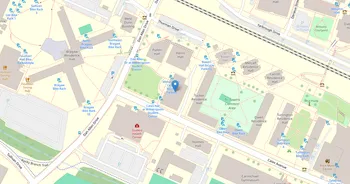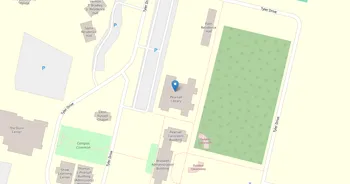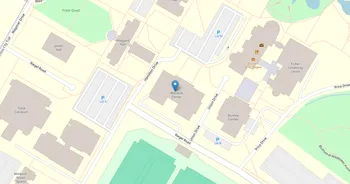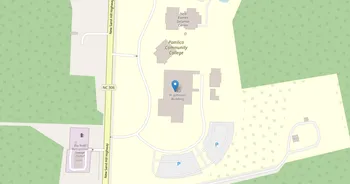University of North Carolina School of the Arts (UNCSA) : Overview, Courses, Scholarships & Rankings
About University of North Carolina School of the Arts
A public arts conservatory in the UNC system, the School of the Arts is known for hands-on learning that pairs studio craft with solid academics. Students immerse in performing and cinematic arts and design-production, rehearsing, building, filming, composing, then refining through critique. The culture is focused and collaborative, and cross-disciplinary crews form fast. And yes, late nights in studios and on stages are part of the rhythm.
Facilities feel professional: stages, soundstages, rehearsal rooms, shops, screening spaces, a strong library, advising, wellness, and career support. Student life revolves around productions plus clubs, fitness, and intramurals; downtown arts venues and local partners offer chances to show work. Career prep leans on showcase events, internships, and visiting artists. Notable alumni include Mary-Louise Parker and Danny McBride.
Key Institutional Details
Contact & Profile
Academic & Institutional
Academic Programs & Fields of Study
University of North Carolina School of the Arts (UNCSA) offers 6 degree programs across 1 major academic fields, graduating approximately 278 students annually. The most popular fields by graduate volume are Arts (6 programs, 278 graduates). Explore program details, award levels, and graduate demographics below.
Arts (6 programs, 278 graduates)
Fine Arts, Design Studies and Creative Performance
| Program Name | Graduates | Gender Distribution | Award Levels | CIP Code |
|---|---|---|---|---|
| Theatre Design and Technology | 90 |
|
Bachelor's
Master's
|
50.0502 |
| Cinematography and Film Production | 88 |
|
Bachelor's
Master's
|
50.0602 |
| Music Performance | 44 |
|
Bachelor's
Master's
Post-Master's
|
50.0903 |
| Dance | 27 |
|
Bachelor's
|
50.0301 |
| Theatre Arts | 27 |
|
Bachelor's
|
50.0501 |
| Voice and Opera Performance | 2 |
|
Post-Master's
|
50.0908 |
Admission Requirements & Test Scores
Comprehensive overview of admission criteria, standardized test score ranges, and application requirements for prospective students at University of North Carolina School of the Arts (UNCSA).
Application Requirements
Data based on IPEDS for 2022-2023 academic year. Test score ranges represent the middle 50% of admitted students (25th-75th percentile). Requirements may vary by program.
Tuition, Fees & Estimated Costs
Overview of tuition rates, housing, and other annual education expenses for undergraduate and graduate students
Financial Aid & Student Support
Summary of scholarships, grants, student loans, and financial aid statistics for undergraduate students
Student Success Metrics
Graduation rates and post-graduation earnings to help assess student outcomes and long-term value of education.
Loan Burden & Repayment Outcomes
Breakdown of loan repayment rates and student debt levels by income and dependency status.
Frequently Asked Questions
Find answers to the most common questions about University of North Carolina School of the Arts (UNCSA)
How much does it cost to attend University of North Carolina School of the Arts (UNCSA)?
The annual tuition at University of North Carolina School of the Arts (UNCSA) is $9,477 for in-state students and $27,211 for out-of-state students. When including room and board, books, and other expenses, the total estimated cost is approximately $27,036 for in-state students and $44,770 for out-of-state students. Additional costs include room and board $13,410 and books and supplies $1,440.
Data based on IPEDS program completions for 2022-2023 academic year. Tuition and cost estimates are approximate and may not include all fees, personal expenses, or transportation costs.
What academic programs and degree levels does University of North Carolina School of the Arts offer?
University of North Carolina School of the Arts (UNCSA) offers 6 academic programs across 1 major fields of study, with available degree levels: Certificate (≥2 yrs), Bachelor's, Postbac Cert., Master's, Post-Master's.
Most popular program areas include:
- Fine Arts, Design Studies and Creative Performance (6 programs)
Data based on IPEDS program completions for 2023-2024 academic year. Numbers reflect programs where students graduated, not all offered programs.
What is the acceptance rate for University of North Carolina School of the Arts?
University of North Carolina School of the Arts (UNCSA) has an 33.1% acceptance rate and a 46.9% yield rate, making it highly selective.
Admission statistics breakdown:
- Total applicants: 1,423
- Students admitted: 471
- Students enrolled: 221
Data based on IPEDS for 2022-2023 academic year. Admission statistics may vary by program and application cycle.
What financial aid and scholarships are available at University of North Carolina School of the Arts?
University of North Carolina School of the Arts (UNCSA) provides financial aid to 23% of first-time, full-time students, with average grants of $12,649 and average loans of $8,494.
Average financial aid amounts by type:
- Pell grants: $5,432
- State/Local grants: $5,596
- Institutional grants: $9,157
- Federal loans: $5,162
The university supports 143 students with grants and 102 students with loans annually.
Data based on IPEDS for 2022-2023 academic year. Financial aid amounts and percentages may vary by program, enrollment status, and individual circumstances.
What is the average salary for University of North Carolina School of the Arts graduates?
University of North Carolina School of the Arts (UNCSA) graduates earn a median salary of $24,537 after 6 years and $38,357 after 10 years.
The salary range 10 years after graduation spans from $17,831 (25th percentile) to $64,599 (75th percentile), with top earners reaching $81,600 (90th percentile).
Data based on IPEDS for 2022-2023 academic year. Salary data reflects graduates who received federal financial aid (approximately 60% of all graduates). Actual earnings may vary significantly based on program, location, and individual circumstances.
Related Universities




Found something useful? Help others discover it too! Share with friends, on social media, or save for later - every share helps someone find the information they need.